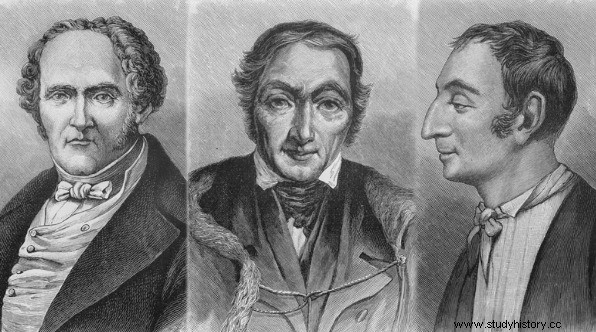
By Leandro Carvalho
The term utopian socialism refers to the first phase of socialist thought that developed between the Napoleonic Wars and the revolutions of 1848 (“People’s Spring”). The precursor thinkers were:Count de Saint-Simon, François-Charles Fourier and Robert Owen.
According to scholars, the term utopian socialism refers to its early thinkers, cited above, who became known as utopian socialists. This denomination has to do with the fact that such thinkers believe in the total transformation of society in a peaceful way, without the need for armed struggle, which would be promoted by the class struggle and the proletarian revolution.
Ideas and criticisms of capitalist bourgeois society in the 19th century, carried out by utopian socialist thinkers, are clearly associated with Enlightenment thought, as they propagated that only with the development of reason and progress, human happiness could be achieved.
The main ideology of the utopian socialists was the defense of equality and the main theorist who influenced them was the Enlightenment philosopher Jean-Jacques Rousseau, who had asserted that private property was the origin of inequality among men.
From this Enlightenment theoretical affiliation, the utopian socialists produced their analyzes and reflections on contemporary capitalist society to their experiences. One of the great thinkers of utopian socialism who stood out was Robert Owen (1771-1858). Born in England, he owned a large textile industry in the city of New Lanark. Despite being a bourgeois, Owen brought about some changes in the working situation of the workers in his factory:he reduced the working day of the working class, set up schools for the workers' children (contributing to the education of children), built houses for the workers ( offered better housing and health conditions) and increased the wages of the proletariat.
The Count of Saint-Simon (1760-1825) was another thinker of utopian socialism. Originally from the “enlightened” French nobility, he did not agree with poverty and social inequalities. His main demand was free enterprise, continuing with the capitalists' profit, but they should assume social responsibilities and offer better living and working conditions to workers.
French merchant Charles Fourier was also an advocate of utopian socialist thought. He believed that the improvement in the living and working conditions of workers would happen through the creation of associations and through cooperativism among the proletariat (production shared by all). He vehemently criticized bourgeois society, which separated work from pleasure. He advocated women's liberation and sexual liberation, as the latter is linked to the release of instincts and the attainment of pleasure.
For some scholars, such as Friedrich Engels (1820-1895), utopian socialists created ideal models that could not be implemented – however utopian socialism was considered the first form of contestation to individualism liberal and was embodied as a possible answer to the social problems that arose during the industrialization process.
